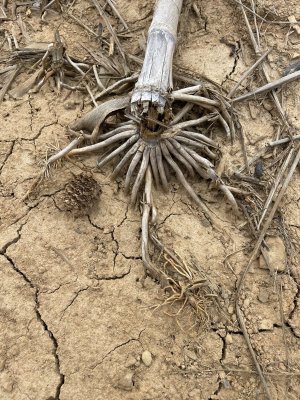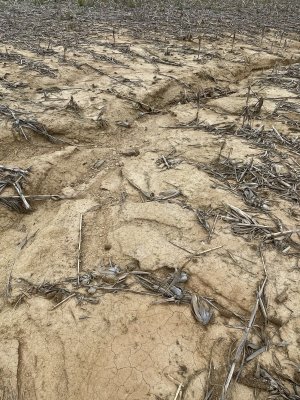Haha, I won't. I've never even heard of him outside this forum. I read the article. It's Missouri research. I do think there's a lot of no-till that goes on down there. Rollier ground, probably more lighter clay soils. These are only my opinions, but if the article would've been speaking of my area, I'd call bs on the no-till yielding with the conventional. Of the famous no-tillers in my immediate neighborhood, 3 of the best all quit no-till corn and went to strip till. They still no-till their beans. These winter annuals are becoming more of a problem with each passing year. I'm sure some of you guys are seeing that. They especially love the fields that haven't been tilled. I made one pass around a few of our bean stubble fields last fall. This spring you can tell to the inch where the disc-ripper ran. Plus the corn popped out of the ground faster and more uniform than the entire rest of the field, in that narrow pass. That's 1 of the reasons some of these guys have gone to strip till. Every area is different. We don't see a lot of erosion on our flat 0-2% sloped fields. I agree with the lady's mention of the equipment and labor getting expensive. That's probably part of the reset. Someday our country will be down to a thousand farmers, then a hundred, and then one. If we make it that far.


